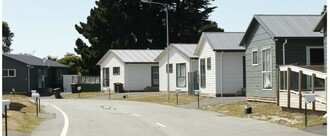-
TVNZ, pull the FBoy Island NZ show immediately!We believe that New Zealand can be a country where all women are safe, seen and celebrated. As a broadcaster, you have a responsibility not to perpetuate stereotypes that have a high likelihood of harming women. It is 2022 and we deserve and demand better. Simon, you’re better than this, TVNZ is better than this. Sort it out, Simon. Pull FBoy Island NZ today. Tania Domett, Erin Jackson and Angela Meyer for Project Gender8,088 of 9,000 SignaturesCreated by Project Gender

-
Immediate Reinstatement of Core Funding for Arts On TourThe removal of core funding to Arts on Tour New Zealand is a slap in the face to small communities and towns around the country.(1) We demand Creative New Zealand immediately reinstate all funding to enable Arts on Tour to continue their terrific work in bringing vibrant and diverse live performance to these communities, and just as importantly, facilitate work opportunities for a wide range of actors, performers and musicians. The choice of Creative New Zealand to cut this funding suggests that small towns and communities are irrelevant, invisible and undeserving of high quality New Zealand cultural experiences through a touring arts programme. For those of us who live in these areas, we are already under siege with the closure of essential services: banks, post offices and health services. The arts are what make a difference to the social well-being of our communities. Arts on Tour NZ has done a sterling job in making the performing arts accessible to often overlooked parts of the country. Let them carry on with it as they have done so successfully over the past twenty-seven years. https://vimeo.com/756109379/75ded89975 References: 1. https://www.stuff.co.nz/the-press/news/129950443/arts-groups-across-new-zealand-lose-core-government-funding2,739 of 3,000 SignaturesCreated by Loretta Bush
-
Save all of Pt Chev's heritage Building One & realign the internal Gate 1 road!Solution vs Demolition: Our local and extended community love this building. We respect its past & the aspirations of mana whenua and Te Tiriti obligations. The Unitec/Carrington site is about to become an urban development of up to 3500 homes. We support affordable, well designed housing, open spaces and amenities that can coexist with scheduled heritage and an alternative internal roading access design. The building has had a history as a psychiatric hospital (1865-1992) & as the home of Unitec’s vibrant Architecture and Design School (1994-2021). Our community trust's 2020 feasibility study for MHUD on the interim adaptive reuse of Carrington Hospital's Building One had overwhelming community support to activate Building One as an Arts, Creative & Wellbeing hub. Built in 1865 and finished in 1905, it has a footprint of 8500sqm, over 2 main levels, with 300 studio spaces including a gallery, library & café. Partial demolition will remove over 600sqm of unique spaces that could have been used by community groups & creatives such as visual artists, dancers, film makers & educators. This building & environs will lose its connection to our community if partially demolished. This is an important valued landmark and reference point for our everyday neighbourhood interactions & wellbeing. We love the spaces, the ecology, the memory, the heritage & support the exciting opportunities to come. We need your help to share our message with people who care about heritage, can influence decision makers & show that the new road option is a "win/win, both/and" vs "either/or" solution. Join our Building One page here: https://www.facebook.com/groups/318949932076119 Read more about our proposed solution here: https://www.pcset.org.nz/projects1,324 of 2,000 SignaturesCreated by Chris Casey
-
Reduce Alcohol Harm: Pass the Bill!Most of us want to live, work, play and raise our children in communities that are healthy, safe and connected. When our communities are safe and healthy we give ourselves and our families the best chance to thrive, grow, and enjoy the things that are most important to us. But the massive and varied harms to health, relationships, and livelihoods from alcohol gets in the way of so many of the things that are important to us. We currently have a rare opportunity to address this problem and make our communities better places to live, work, and play with the Sale and Supply of Alcohol (Harm Minimisation) Amendment Bill about to go before parliament. Sign this petition to ask your Member of Parliament, representing your community and our nation, to support the best chance for alcohol reform we have had for ages. What makes the Sale and Supply of Alcohol (Harm Minimisation) Amendment Bill so great? ⭐️ The Bill will remove the special appeals process from local alcohol policy development, so that communities, not alcohol retailers, have a greater say when it comes to local decisions around where, when and how alcohol can be sold. ⭐️ The Bill will also end alcohol advertising and sponsorship of broadcast sport, implementing some of the recommendations from Sir Graham Lowe’s 2014 Ministerial Forum on Alcohol Advertising and Sponsorship. These measures are among the strongest tools available to turn around heavy drinking in our communities. And they are long overdue. Our communities have suffered the effects of our failed liquor laws. Māori, Pasifika and low income communities continue to shoulder the greatest burden of alcohol harm. Alcohol retailers have endlessly appealed Councils’ local alcohol policies so that they no longer resemble the wishes of their constituent communities. Councils’ have expressed frustration at their alcohol policies being watered down to appease the alcohol industry. For this reason, many Councils have formally endorsed the Bill. Ending alcohol sponsorship of broadcast sport serves to protect current and future generations from the established harms of alcohol marketing, especially children who are heavily influenced by their sporting heroes. Winding up alcohol sponsorship of broadcast sport allows communities to experience the richness of connection and community through a healthy activity, without being harmed by the influence of alcohol advertising. Reducing alcohol harm means better mental health, improved child wellbeing, reduced family harm, less pressure on our health system, less pressure on police and emergency services, and improved productivity and economic growth. Alcohol harm impacts almost everything we care about as New Zealanders. Urge your Member of Parliament to be brave and go on the public record with their support of this Bill. Ask them to vote for this Bill at first reading and engage in the Select Committee process. Let’s not squander this opportunity. Together, we can create safer, healthier and fairer communities. The next steps for the Bill: The Bill could be debated as early as August. So it's important to show your support now! The Bill needs 61 votes from MPs to pass its first reading in Parliament so it can proceed to Select Committee. Then communities will be able to have their say on the Bill through the public consultation process. Read our evidence-based factsheets for more information: 👀 The Sale and Supply of Alcohol (Harm Minimisation) Bill https://www.ahw.org.nz/Portals/5/Resources/Fact%20Sheet/2022/Factsheet_Alcohol_Harm_Minimisation_Bill_2022.pdf 👀 Alcohol Sponsorship of Sport in Aotearoa New Zealand https://www.ahw.org.nz/Portals/5/Resources/Fact%20Sheet/2022/AHW%20Alcohol%20sponsorship%20factsheet%20June%202022.pdf For more information, check out our website at www.passthebill.org.nz. This community action initiative is a collaboration between Alcohol Healthwatch and Hāpai te Hauora.8,240 of 9,000 SignaturesCreated by Alcohol Healthwatch

-
Ensure funding and timely access to diagnosis for neurodivergent peopleEveryone, no matter where they live, or how unique their minds are, deserve to have the support they need to live full and happy lives. But at the moment, someone seeking a diagnosis for autism, ADHD, dyslexia and other cognitive, learning and sensory disabilities, has to navigate a complicated and stressful system. Wait times within the public system can be years long and the cost to go privately can be anywhere from $500 - $3500. This means that many people have to go without a diagnosis for long periods of time and therefore miss out on access to the support they need. This is an unfair system that needs to change. People should not have to be privileged or wealthy to access the assistance they require.412 of 500 SignaturesCreated by Saoirse Lynch
-
Our children with Crohn’s disease and ulcerative colitis deserve the same care as adults!New Zealand has one of the highest rates of Crohn’s disease and ulcerative colitis (known as inflammatory bowel disease or “IBD”) in the world. These diseases are chronic and relapsing illnesses, characterised by sudden flares, emergency department visits, frequent hospitalisations, and, often, surgery. It is estimated that there are 20,792 New Zealanders with these diseases and the number is expected to double in the next ten years. Many of these patients are children. While almost every DHB in NZ funds adult IBD specialty nurses, there is not a single paediatric IBD nurse in all of New Zealand, not even at our largest paediatric centre, Starship Hospital. The issue of equity for this very vulnerable segment of our population needs to be raised. The critical role of the IBD nurse is to provide direct, immediate medical access and assessment to children when their disease suddenly flares. In these situations, it is prompt treatment which prevents lengthy hospitalisations and life-altering surgery. In addition, IBD nurses are the primary educators of both patients and caregivers, they manage immunosuppressive medications, ensure that preventative measures such as vaccinations and screening procedures are up-to-date, provide advice on diet, manage side effects of medications, and ensure compliance with treatment regimens. Not only does the work of the IBD nurse improve patient outcomes, but it significantly frees up time for their physician colleagues to perform other tasks. The impact of the IBD Clinical Nurse Specialist on patient outcomes and hospital costs has been well and repeatedly documented. A recent study reported in the British Medical Journal in 2020, demonstrated a one-third decrease in hospitalisations in the year following the addition of an IBD nurse to the GE team (P=0.002). Similar results were reported in a study from the Royal Adelaide Hospital in the Journal of Crohn’s and Colitis. Hiring a single nurse will not only save taxpayers tens of thousands of dollars, but, most importantly, will help keep our children out of the hospital and out of surgical theatres. It will ensure that our children have access to the same quality care that is routinely available to adult IBD patients in New Zealand and to other children throughout the world.1,558 of 2,000 SignaturesCreated by Richard Stein
-
Healthy Food and Drink in SchoolsWe believe that every child and young person in New Zealand deserves the best start to life and what they eat and drink is vital for optimal physical and mental health. Research in New Zealand has highlighted ‘free sugars’ as contributing significantly to high rates of poor physical health, poor oral health, diabetes and other health-related diseases.[1] The consumption of free sugars in sugar sweetened beverages contributes to 26% of the total sugar intake of children.[2] Studies conducted by the Environmental Health Indicators New Zealand (EHINZ) note that dental decay is now the most common disease reported among children in New Zealand. But sugary drinks are not the only problem. The food our children eat also needs to be healthy and nourishing. Research has demonstrated that children who eat healthy food are better behaved and better able to concentrate in class and learn.[3] Education is key to improving health outcomes in our community and schools need to lead the way. Promoting healthy food and then selling unhealthy food in our school canteens does not make sense. We already have Healthy Food Guidelines, Schools need to be given the duty and support to implement them. [4] For more information, please contact: Shona Jaunas (President Open Forum for Health Information) [email protected] https://www.openforumforhealthinformation.com/nz-schools-consultation [1] Free sugars are defined by the World Health Organisation as monosaccharides and disaccharides added to food by both the manufacturer and consumer, including sugars naturally present in honey, syrups, and fruit juice. [2] Sundborn et al, “New Zealand’s growing thirst for a sugar-sweetened beverage tax”, New Zealand Medical Journal, 2015. [3] Rucklidge and Kaplan, “The Better Brain, How Nutrition Will Help You Overcome Anxiety, Depression, ADHD and Stress, Vermillion, 2021 [4] 20210927-Nutrition-Guidance-Formatted-FINAL.pdf (education.govt.nz)1,368 of 2,000 SignaturesCreated by Open Forum for Health Information New Zealand
-
Ensure access to ERP therapy for people living with OCDFixate is an online community for NZers living with OCD or supporting someone living with OCD, with over 800 members. Personal experiences shared within Fixate reveal heart-breaking stories of individuals and families struggling with untreated OCD. Aside from the enormous personal cost, there is a hidden public cost in the “revolving door of care'' where people receive ineffective support for unrecognised, misdiagnosed or untreated OCD. Early diagnosis and targeted interventions would reduce both suffering and the need for costly support and long-term therapy down the track. When emerging OCD symptoms that could be “nipped in the bud” are left untreated, they become embedded and more resistant to treatment. The best practice treatment for OCD is ERP therapy (2). Sometimes this can be accompanied by medication that ‘quietens the obsessive thoughts’, making it easier to do the exposure work. Most people who access these treatments experience substantial improvement and/or recovery (where troublesome unwanted thoughts still occur, but are manageable and no longer disrupt everyday life). In Aotearoa New Zealand, people experiencing severe OCD are referred to secondary mental health services. However there is a high bar to acceptance of referrals and staff with expertise in ERP therapy are reportedly scarce to non-existent. Even when a referral is accepted, people are added to long waiting lists and don’t access treatment for many months. Those who don’t meet the threshold for referral are left in primary care where health professionals lack training in ERP therapy. 1. https://www.stuff.co.nz/life-style/wellbeing/125409931/obsessive-compulsive-disorder-convinced-woman-she-was-a-dangerous-murderer 2.https://journals.lww.com/intclinpsychopharm/Fulltext/2020/07000/Clinical_advances_in_obsessive_compulsive.1.aspx To learn more about people living with OCD and ERP therapy, go to www.ocd.org.nz https://iocdf.org/blog/2017/03/31/view-the-new-documentary-living-with-me-and-my-ocd/ https://www.lawsociety.org.nz/news/lawtalk/lawtalk-issue-944/obsessive-and-compulsive1,438 of 2,000 SignaturesCreated by Marion Maw
-
Commission of Inquiry into dyslexia & neurodiversity in New ZealandDyslexia/neurodiversity affects around 15% of people worldwide, and impacts on their education, their working lives, and wider social interactions. Dyslexia/neurodiversity are best described as differences, as opposed to disabilities, but the way that society treats them turns them into disabilities. Dyslexia/neurodiversity are poorly understood and often overlooked in government policies. Currently New Zealand gathers no statistics about dyslexia/neurodiversity and New Zealand Human Rights legislation is silent on them. Many people with dyslexia/neurodiversity are not aware they have it and many people with it strive to hide it to avoid ridicule. Sadly, most teachers in most schools are poorly equipped to support children with dyslexia. Pre-service teacher training provides minimal dyslexia/neurodiversity instruction for new teachers entering the education workforce. Without change the challenges facing dyslexic children and adults are not likely to be addressed. Meeting the needs of Kiwis with dyslexia/neurodiversity is an equity issue. Sadly dyslexic/neurodiverse Kiwis have been ignored. It is demonstrably unfair that this group of Kiwis continue to be short-changed and treated poorly. This is also a major workplace productivity issue. No country can achieve to its full potential when 10 – 15% of its population are not fully engaged. This petition is about giving all Kiwis a fair go.7,953 of 8,000 SignaturesCreated by Mike Styles
-
Free N95 Masks For All!Given the extra risk of exposure and infection because of the recently announced changes, it is becoming increasingly urgent that N95, P2, or equivalent quality masks are available and universally accessible. The Government has said that all healthcare and border workers have access to N95 or equivalent masks. But as the Government opens up the border and eases restrictions internally, the general public of Aotearoa New Zealand need quality masks. These masks are comfortable and breathable, they prevent transmission and save lives. Prevention of infection is the best course of action. Along with concern for the capacity of our health system, we are extremely concerned about the wellbeing of people who cannot social distance or properly ventilate their spaces at work, where they live, or where they study. Good quality masks are vital for our wellbeing. Masks For All! References: 1. https://www.stats.govt.nz/news/annual-inflation-hits-a-three-decade-high-at-5-9-percent 2. https://www.stuff.co.nz/life-style/homed/renting/127544121/rents-still-rising-as-supply-pressures-remain501 of 600 SignaturesCreated by Communities For Public Health
-
Save Our National Passenger Rail NetworkTrains connect communities and are an important part of climate change action. In late 2021, KiwiRail, announced end of same-day intercity services between Auckland/Wellington and Picton/Christchurch. They were to be replaced by luxury multi-day rail cruises. In a win for this campaign, KiwiRail recently reversed that decision and reinstated the Northern Explorer and Coastal Pacific effective September 2022. While this is a win for the travelling public, it is not the end of the issue. Much of Aotearoa New Zealand remains disconnected by from the rail passenger network and other services, like the the Capital Connection between Wellington and Palmerston North, remain under threat from underinvestment. This comes at a time when the Government has said it is committed to climate action and reducing inequality. Trains have connected friends and families for graduations, weddings, holidays, and business for generations. They have connected towns with the cities, and bought our country together. But a period of privatisation and decades of underfunding has limited the development and use of our national rail network. Trains have an important place in our future but it requires investment and planning from this Government. 🛤 Rail provides a more sustainable and climate friendly method of transport across the country. 🛤 Rail can invigorate the social and economic life of small communities by making them accessible to remote workers and tourists. 🛤 Trains can bring our diverse country together by connecting them to people and landscapes across wide distances. 🛤 Trains provide an accessible method of point-to-point transport for the elderly and disabled. 🛤 Trains can help take traffic off the roads and improve road safety. Rail is an important part of our past, but it should also be part of our future. Join the campaign to support the retention of a national passenger rail network.12,479 of 15,000 SignaturesCreated by Patrick Rooney

-
Call to action on housing in KāpitiThe 240 houses that Kāinga Ora has across the District are not enough to house long-term homeless people, let alone the growing number of people who are coming onto the list. This includes people who formerly rented in the private sector and who have been given notice to leave their homes as landlords have decide to sell their properties. Even if there was an adequate supply of private sector accommodation, the exorbitant rents mean that people simply can't afford to meet that cost. There is strong support for this call for action across the entire Kāpiti population. Young people who can't afford to leave home; families with children who move in with their parents because they can't afford the rent demanded; an 85-year-old who has lived in the same unit for 17 years being given notice because the landlord is going to rent to a family member; working single people who can't afford a one bedroom flat - the scenarios come thick and fast and we hear them all.422 of 500 SignaturesCreated by Donna Bridgeman

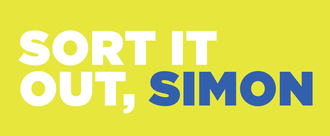

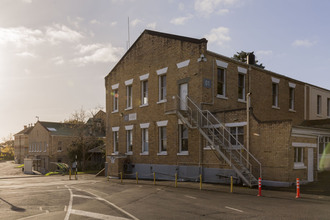

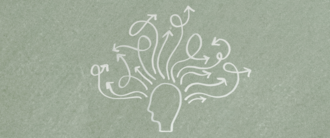
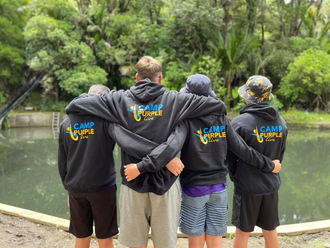
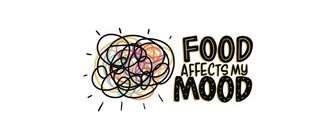


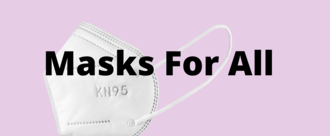_(Twitter_Post)(3).png)
.png)
